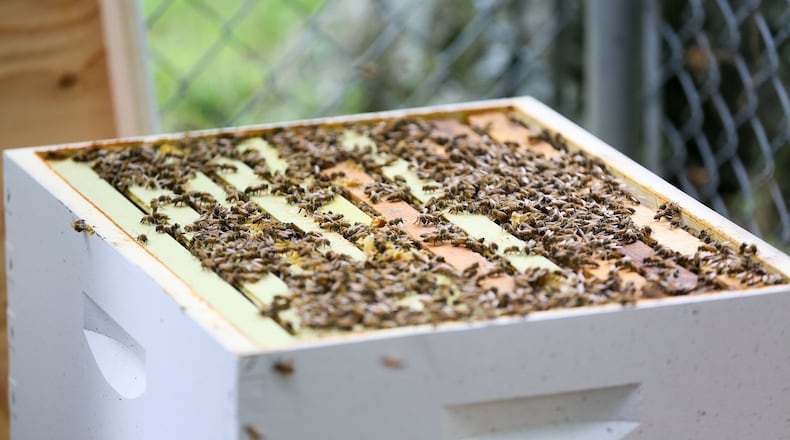Gambrell, who previously worked at the Cincinnati Zoo & Botanical Garden as well as Krohn Conservatory in Cincinnati, was arguably the biggest proponent of the legislation.
Honey-bee populations declined in the 1950s, the 1980s and in recent years because of pesticides, varroa mites and other factors, he said. This decade, cities like New York and Chicago have legalized beekeeping in response.
“I think it’s fantastic that it’s moving forward,” said Gambrell, director of Hamilton! Civic Society. “There’s a lot of potential with it.”
“We’ve had a number of institutions express interest in it,” he said. “Hamilton Urban Gardens wants to get some bee hives. Miami Hamilton’s Conservatory wants to have hives.”
So have people from other organizations, he said.
STINGING PROSECUTOR: Butler County official an avid beekeeper
“It also gives us motivation to get locally sourced honey used at a lot of the restaurants,” he said. “A city like Hamilton that didn’t get our first urban-farming ordinance until 2012, and that limiting to just fruits and vegetables, shows that we’re kind of behind in times, and we need to have more comprehensive urban farming. And I think this is a good starter, to allowing residents to do more.”
The legislation makes keeping of bees an “accessory use,” under which people would have to submit an application to have hives, turn in plans showing their locations, and pay a $20 fee. They also would have to notify neighbors within 100 feet of their properties, and post signs that bees are kept on the property.
Heather Gambrell said she was glad to see Hamilton approve the legislation to help bees.
“I think it’s a good idea,” she said. “They obviously need our help right now.”
About the Author
